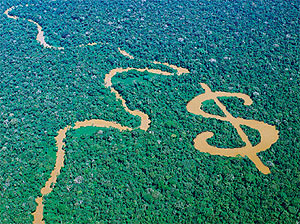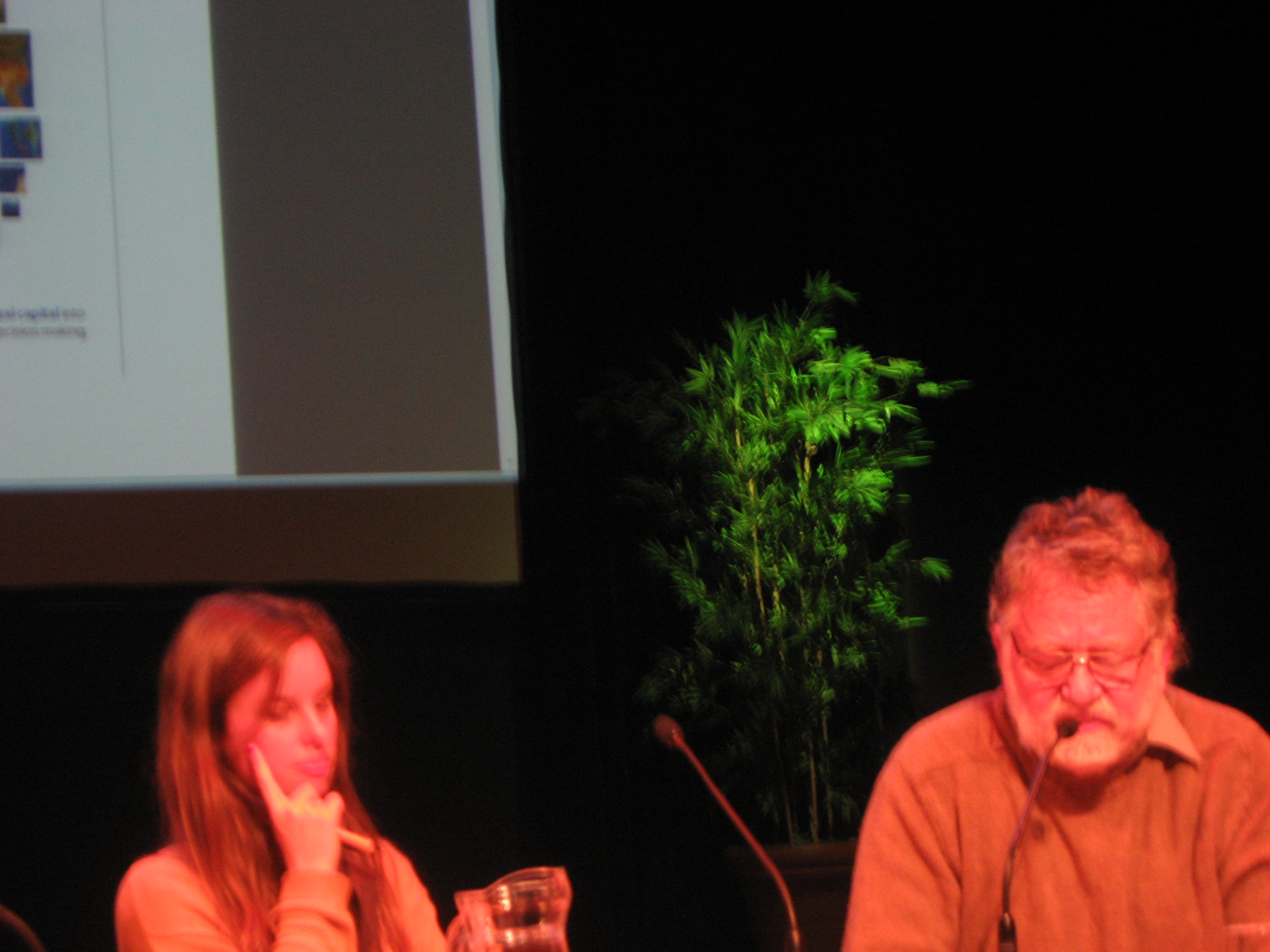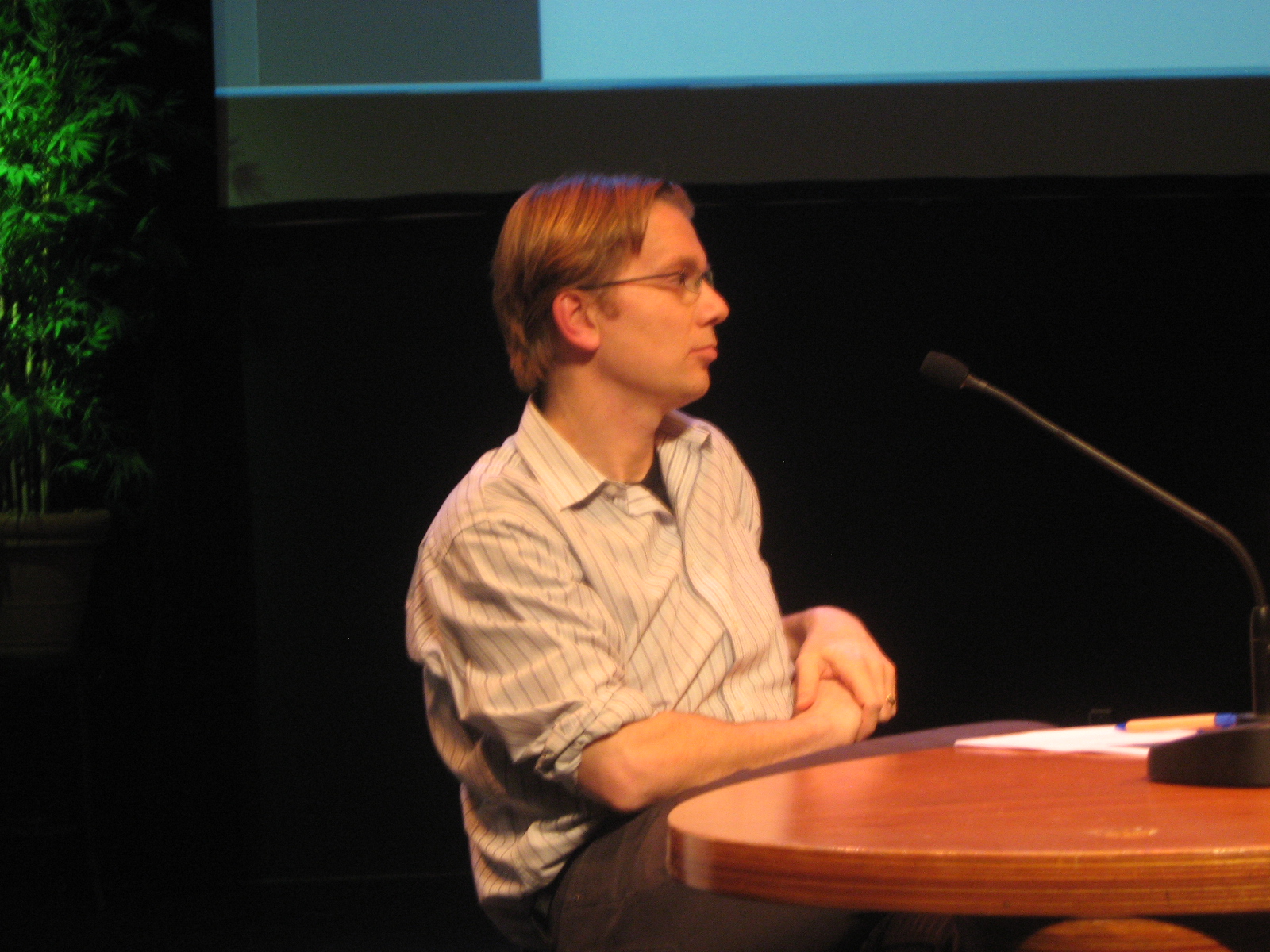Green Economy (report of program 03/12/21012)
Verslag (verder in het Engels) van programma over de Green Economy op 3 december 2012 in CREA, Amsterdam.
The Green Economy (and the Financialisation of Nature) was the subject of the Real World Economics program at CREA on December 3. Speakers were Edgardo Lander and Bram Buscher

The evening was moderated by Hilde van der Pas from Transnational Institute (TNI)
Edgardo lander started the evening with an introduction on the current state of the climate campaigns.

Edgardo Lander is Fellow of the Transnational Institute, Professor of Social Sciences at Universidad Central de Venezuela and Associate of the Miranda Centre in Caracas. He started his introduction with some facts and figures about the severity of the current climate crisis which is not a future threat but a disaster happening already and with many people already suffering the effects. Without drastic measures in the near future temperature will surely rise more than 2 degrees Celsius, maybe even 4 and that would be catastrophic. Meanwhile the US is not tackling its dependency on fissile fuels, but according the World Energy Outlook most likely to become the biggest producer, mainly by developing new techniques to exploit fossil stocks, such as fracking.
Meanwhile also there have been 17 world summits (COP) without much progress, and four reports by the IPCC. The 18th COP was taking place as we were having our meeting, and the aims were absurdly modest (to have an agreement by 2015 for a plan to start 2020) and even that was unsure to succeed.
The ‘solution’ that UN and governments, the World bank and corporations are proposing now, is this ‘green economy’. It is presented the same way that twenty years ago Sustainable Development was presented; this would stil allow unlimited growth and within the capitalist system. It clearly didn’t work and with this green economy the same and worse will happen. It is as Edgardo Lander says “another attempt to not change anything”.
The proposal for a green economy will not save nature and ecosystems, but will stimulate its exploitation. The underlaying analysis is that the current economic crisis has been caused by ‘market failures’. The solution, following this theory, is that new agreements are necessary that produce better signals for those markets. And new markets need to be created, hence the opening up of commercialised nature-products. One of the solutions that are promoted is that ’the polluter should pay. Instead of preventing pollution, this means that anyone who can pay, can continue polluting.
The goals of this approach are to legitimize capitalism, restore optimism about the future, depoliticise the debate around climate change and ignore power relations.
It is an attempt to have the best of both worlds: business, growth and environmental concerns would have to all profit from this, by incorporating nature into the capitalist logic of value, and thus also make possible to speculate with (the value of) nature.
If you look who is behind these proposals, we can track back 20 years of promotion of ‘natural capital’ by business sectors. One can see these forces present in initiatives as ‘Beyond GDP’ and Green Accounting, which all major accountancy corporations now jumped on. According to Edgardo Lander the problem already started with the launching of the concept of sustainable development, which suggested solutions that all would take place within the existing capitalist system. The newly presented concept of the Green Economy is a step further into the incorporation of every form of life into the market economy.

Bram Buscher, Associate Professor of Environment and Sustainable Development at the Institute of Social Studies, was second to speak. His talk was illustrated by slides with statistics, cartoons and examples of business-led initiatives. Bram dug deeper into the existing platforms to promote the financialisation of nature. Part of his talk focused on a specific aspect of this scheme to capitalise nature, and that is the problem of how to calculate or attach value to nature. one of the many examples presented, is http://speciesbanking.com/, a “global information clearinghouse for biodiversity offsetting, compensation and offset banking.” here you see an example of ‘neoliberal conservationism’, that Bram summarizes as ‘fictitious conservation’. See for instance A Guide to Biodiversity for the Private Sector.
How is value attached to something complicatied like biodiversity, and what consequences does that have for for instance separate species? Are some worth more than others? What happens to species that are considered to be of less value than others, can they get extinct for free?
The examples are of already existing ‘nature selling’ initiatives, as we also see with the carbon market (CDM and REDD), the privatization of park management and payment for environmental services (TEEB etc.)
Many of the kind of ‘solutions’ for the combined economic and ecological crisis have been put forward like the ‘Green New Deal’. It is an attempt to “tackle three crises for the price of one”. To understand what is being proposed, it is crucial to understand what capital is in fact: not a fixed ’thing’ but a process. Circulation of capital is an important element in the current economy, and we have to understand that the current crisis is above all one of over-accumulation and overproduction. A central problem is how value is defined, and created, in contemporary capitalism. That is where the key concept or ‘natural capital’ comes on the stage.
Concluding Bram agrees with the first speaker that the proposal of Green Economy will only make things worse and speed up the destruction of nature.
See the power point slides for much more information from Bram Buschers talk.
One of the pressing examples given for what is happening at the moment is the website http://www.ecosystemmarketplace.com/ where one can see how everything is bing commodified.
After the two introductions some questions or reactions were voiced, and a bit of a debate happened, mainly about the ways to counter this development and find alternatives. For instance in the appeal to stop thinking in terms of continuous growth (and if it is sound to demand that also from economies like that of China). one of the attempts to change the course of history is the Yasuni territory in Ecuador, one of the regions with the greatest biodiversity in the world, and at the same time holding large stocks of oil. The proposal was to leave that unexploited, if rich countries would come up with some money, but up till now that has not functioned. Although the COP-meetings are clearly not working, there sure is the need for international structures that allow quick and fundamental decisions. If only big business wouldn’t occupy any of those structures. Apart from the existing environmental and climatic crisis, there is a new need for agreements because of the emergence and rapid growth of synthetic biology. Viable proposals are being put forward by networks like Via Campesina or feminist economists. In Latin America there are many alternatives models in the making at the moment, sometimes lead by indigenous movements. They might not be immediately applicable in the European context, but for the Europeans the much debated concept of the Commons, as an alternative to commodification of nature is a real alternative with a long historical tradition.
————————
Example: Natural Capital Summit
See also: Green economy or greedy economy?
http://wdm.org.uk/greeneconomy
New book just appeared in Dutch on this subject: De Mythe van de Groene Economie
TNI: http://www.tni.org/work-area/environmental-justice
CarbonTradeWatch: http://www.carbontradewatch.org/